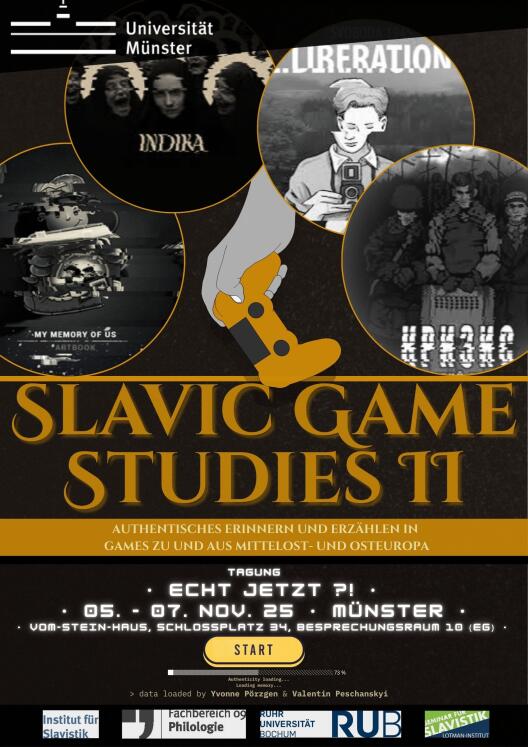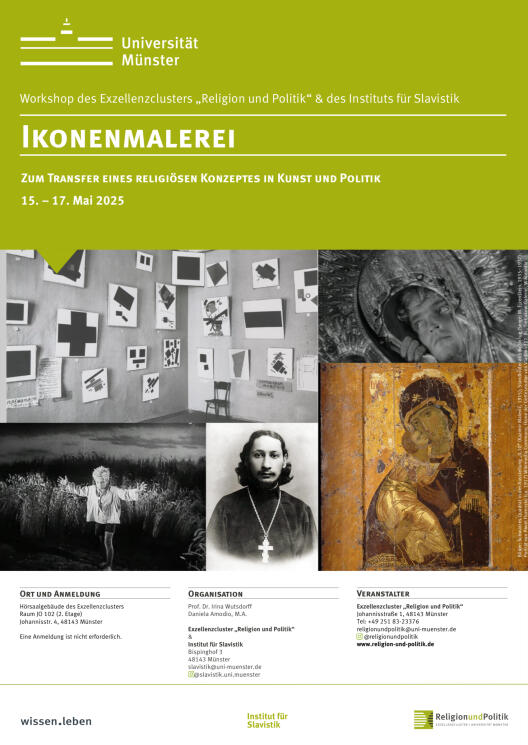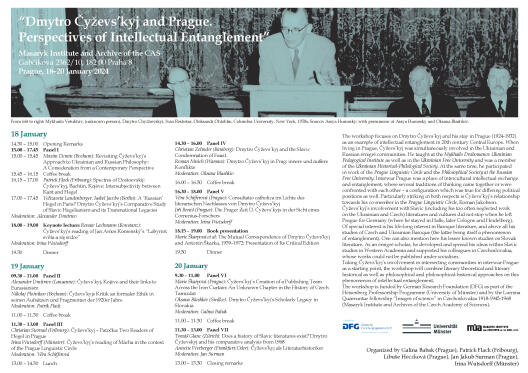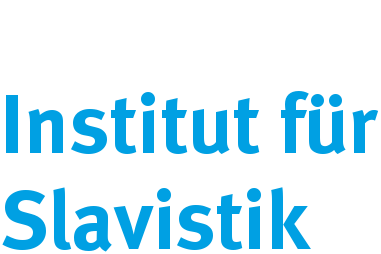Tagung – Slavic Game Studies II: Authentisches Erinnern und Erzählen in Games zu und aus Mittel- und Osteuropa

Die interdisziplinäre Tagung widmet sich der Authentizität in Computerspielen mit Bezug zu Mittelost- und Osteuropa. Authentizität ist ein in mehrfacher Hinsicht schwieriger Begriff, der zum Bedeutungsumfeld des Originären, Realen und Eigentlichen gehört. Im Zusammenhang mit Spielen dient er als Kampfbegriff und Verkaufsargument, mit dem Spieler:innen vor ihre Monitore gelockt werden sollen. Die Logik dahinter ist so schlicht wie effektiv: Die bisherigen Spiele waren in grafischer, spielerischer, erzählerischer, historischer oder anderer Hinsicht nur Spiele, also Simulakren oder Abbilder, das neue Spiel hingegen transzendiert seine Medialität – es ist echt oder eben: authentisch. Naturgemäß kann dieses Versprechen nicht eingelöst werden, weil Authentizität insbesondere im medialen Kontext immer nur eine gut gemachte Illusion sein kann. Mit welchen Mitteln und zu welchen Zwecken diese Illusion erzeugt und vorgetäuscht wird, speziell auch im Kontext ideologischer und geschichtspolitischer Grabenkämpfe in Mittelost-/Osteuropa, wollen wir während der Tagung ergründen. Von dieser Warte aus wird auch die Sondierung des Feldes der Slavic Game Studies fortgeführt.
Hier finden Sie den Ablaufplan.
Workshop: Ikonenmalerei. Zum Transfer eines religiösen Konzeptes in Kunst und Politik

Ort: Raum JO 102, Hörsaalgebäude des Exzellenzclusters, Johannisstraße 4, 48143 Münster
Ikonen nehmen in der russischen Kultur seit dem 19. Jahrhundert eine herausgehobene Stellung ein: Ursprünglich kultische Bildwerke der orthodoxen Liturgie, wurden sie von den Slavophilen zu Sinnbildern einer eigenständigen russischen Tradition erhoben – im Kontrast zur als rationalistisch, individualistisch und gottfern kritisierten Kultur des Westens. Diese symbolische Aufladung setzte sich im Laufe des 20. Jahrhunderts fort und findet bis heute Eingang in politische und propagandistische Diskurse, die die Ikone als Zeichen spiritueller Kontinuität und kultureller Identität Russlands gegenüber dem Westen stilisieren.
Der Workshop widmet sich medialen Transformationen und ideologischen Aufladungen dieser Ikonentradition – etwa in der russischen Literatur des 19. Jahrhunderts, in der frühen russischen und sowjetischen Filmkunst oder in der Moderne bei Kazimir Malevič, der sein „Schwarzes Quadrat“ als Ikone seiner Zeit bezeichnete. In interdisziplinärer Perspektive – zwischen Literatur-, Kunst-, Medien- und Zeitgeschichte – wird gefragt, wie sich ästhetische Verfahren und symbolische Funktionen der Ikonenmalerei in anderen Medien niederschlagen und mit welchen kulturellen oder politischen Implikationen solche Bezugnahmen jeweils verbunden sind.
Das Programm finden Sie hier.
Workshop: Video Game Adaptations of Historical and Literary Narrations

Narratives, both literary and historical, have always been appropriated by other arts. The various phenomena of media change have been widely researched for the established arts such as painting, music and film, but in the field of digital games, processes of this kind are still very much under-explored, especially in relation to Central and Eastern Europe.
The workshop aims to investigate intermedial transfer processes between history, literature and game(s). At the centre of our interest are game adaptations of historical and literary narratives, whereby attention will also be paid to the reverse direction of transfer, the appropriation of game materials and mechanics in texts (Victor Pelevin, Yurii Andrukhovych). The focus will be on Slavic cultures in the broadest sense: The games and/or texts analysed should at least have a connection to Slavia, either in terms of their content or their origin.
Within this loose framework, the spectrum of literary adaptations ranges from well-researched global hits such as the Witcher, S.T.A.L.K.E.R. and Metro game series to the recently published adaptation of Stanisław Lem’s novel The Invincible (Niezwyciężony). The different modes of dealing with history are just as diverse, ranging from historical didactics (Svoboda 1945: Liberation) to propagandistic historical fabrication (Smuta). In the vast majority of games, history fulfils the function of an exotic scenario and simply serves the purpose of entertainment, as in the recently published The Last Train Home or the strategy classic Cossacks, whereby both the didactic and distorting aspects resonate implicitly here. In this context, a look at counterfactual depictions of history (Atomic Heart, Iron Harvest) would be of particular interest.
A second focus of the workshop is on methodological considerations: In respect to their own media specificity, games can be analysed partly with the established methods of cultural and media analysis, partly Game Studies have developed and are developing new methods, which will be presented and discussed in the workshop.
The aim of the workshop is to explore the new intermedial field of Slavia, to lay the foundations for Game Studies with a Slavic profile, i.e. Slavic Game Studies, and to familiarise participants with methods. Possible questions are:
• How do games adapt literary and historical narratives?
• What are the specifics of this type of “intersemiotic translation” (Jakobson)?
• What methods can be used to analyse these processes?
• Which historical myths are created in games?
Dmytro Čyževs’kyj and Prague. Perspectives of intellectual entanglement

The workshop focuses on Dmytro Čyževs’kyj and his stay in Prague (1924-1932) as an example of intellectual entanglement in 20th century Central Europe. When living in Prague, Čyževs’kyj was simultaneously involved in the Ukrainian and Russian émigré communities. He taught at the Mykhailo Drahomanov Ukrainian Pedagogical Institute as well as in the Ukrainian Free University and was a member of the Ukrainian Historical-Philological Society. At the same time, he participated in work of the Prague Linguistic Circle and the Philosophical Society at the Russian Free University. Interwar Prague was a place of intercultural intellectual exchange and entanglement, where several traditions of thinking came together or were confronted with each other – a configuration which was true for differing political positions as well. Particularly striking in both respects is Čyževs’kyj’s relationship towards his co-member in the Prague Linguistic Circle, Roman Jakobson.
Čyževs’kyj’s involvement with Slavic (including his too often neglected work on the Ukrainian and Czech) literatures and cultures did not stop when he left Prague for Germany (where he stayed in Halle, later Cologne and Heidelberg). Of special interest is his life-long interest in Baroque literature, and above all his studies of Czech and Ukrainian Baroque (the latter being itself a phenomenon of entanglement). One can also mention here his lesser known studies on Slovak literature. As an émigré scholar, he developed and spread his ideas within Slavic studies in Western Academia and supported his colleagues in Czechoslovakia, whose works could not be published under socialism.
Taking Čyževs’kyj’s involvement in intersecting communities in interwar-Prague as a starting point, the workshop will combine literary theoretical and literary historical as well as philosophical and philosophical-historical approaches on this phenomenon of intellectual entanglement.
The workshop is funded by German Research Foundation (DFG) as part of the Heisenberg Professorship Programme (University of Münster) and by the Lumina Quaeruntur fellowship “Images of science” in Czechoslovakia 1918-1945-1968 (Masaryk Institute and Archive of the Czech Academy of Sciences).
Die Moderne(n) der Region. Zum Verhältnis von Zentrum und Peripherie am Beispiel der Böhmischen Länder

Workshop im Rahmen des Heisenberg-Projektes „Prager Moderne(n)“ und des Forschungs-verbundes „Prag als Knotenpunkt der Moderne(n)“ (Programm)
veranstaltet von Prof Dr. Irina Wutsdorff und Dr. Jana Marková (beide WWU Münster),
in Zusammenarbeit mit Prof. Dr. Manfred Weinberg, Dr. Štěpán Zbytovský (beide Karlsuniversität Prag) und Prof. Dr. Steffen Höhne (HfM Weimar)
19.–21.05.2022
Domplatz 6, SFB „Recht und Literatur“, Raum 303
Abendvortrag am 19.05.2022 um 18 c.t. im Fürstenberghaus, Domplatz 20–22, Raum F 043:
Prof. (em.) Dr. Vladimir Biti (Universität Wien): Zentrum und Peripherie: Gescheiterte Ineinanderübersetzung in Franz Kafkas Beim Bau der chinesischen Mauer
Wie kommt ,die‘ Moderne in die Region? Wie ,modern‘ ist die Region? Was und wie tragen Regionen zu der meist mit den großstädtischen Zentren assoziierten Moderne bei? Im in weiten Teilen rural geprägten Böhmen, Mähren und Sudetenschlesien (heute Tschechien) stellen sich diese Fragen in besonderem Maße. Wie positionierten kulturelle Akteure sich in den vielen Klein- und Mittelzentren? Inwiefern wurde der eigene Standort dabei als peripher wahrgenommen und konzipiert oder auch eine zentrale Stellung eigener Art für ihn proklamiert? Wie wurden – von Imitation bis Abgrenzung – eigene Positionen zu Tendenzen des Zentrums in Beziehung gesetzt? Was fungierte in welchen Kontexten überhaupt als Zentrum bzw. gegen welches Zentrum wurde eine regionale Eigenständigkeit behauptet – etwa Brünn oder Prag, Wien oder Berlin oder eher Paris, New York oder Moskau? Bei derartigen Verortungen kam es zudem im Laufe des Untersuchungszeitraums (1890er bis 1930er Jahre) zu massiven Verschiebungen. So ist nicht nur zu fragen, was, sondern auch, was wann von wem mit welchen Argumenten als Zentrum bzw. Peripherie betrachtet wurde, aber auch, welcher Stellenwert dem Gegensatzpaar Zentrum – Peripherie jeweils zugeschrieben wurde. Diesen das Verhältnis von Moderne und Region betreffenden Fragen geht der Workshop mit Blick sowohl auf die deutsch- wie auf die tschechischsprachige Literatur und Kultur in vergleichender Perspektive nach.

